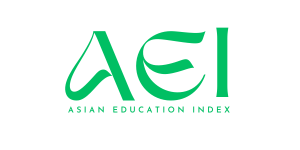Models Of The Methodology For Developing A Scientific Worldview In Preschool Children
Keywords:
scientific worldview, preschool educationAbstract
The formation of a scientific worldview in preschool-aged children is one of the key aspects of early cognitive development. During the early years, children develop fundamental concepts about nature, society, and the laws of the environment, laying a solid foundation for future learning. This article examines the main models of methodology for forming a scientific worldview in preschoolers, their features, and their application in educational institutions. The study discusses inquiry-based learning, game-based education, and digital technology-assisted teaching methods. The analysis results indicate that visual, interactive, and experimental approaches provide effective results in introducing children to scientific concepts. Additionally, the article explores the role of digital technologies in preschool education, the effectiveness of educational processes, and strategies for developing a scientific worldview.
References
Выготский, Л. С. (2014). Мышление и речь. Москва: Педагогика.
Давыдов, В. В. (2016). Теория развивающего обучения. Москва: Интеллект-Центр.
Эльконин, Д. Б. (2018). Психология игры. Москва: Педагогика.
Рубинштейн, С. Л. (2020). Основы общей психологии. Санкт-Петербург: Питер.
Гальперин, П. Я. (2015). Развитие исследовательской деятельности у детей дошкольного
возраста. Москва: Педагогика.
Занков, Л. В. (2015). Обучение и развитие. Москва: Просвещение.
Брунер, Дж. (2017). Психология познания: За пределами непосредственной информации.
Москва: Прогресс.
Смирнова, Е. О. (2017). Развитие мышления у дошкольников: Теория и практика. Москва:
Академия
Downloads
Published
Issue
Section
License
Copyright (c) 2025 Saparniyazova Aigul

This work is licensed under a Creative Commons Attribution-NonCommercial 4.0 International License.
User Rights
Under the Creative Commons Attribution-NonCommercial 4.0 International (CC-BY-NC), the author (s) and users are free to share (copy, distribute and transmit the contribution).
Rights of Authors
Authors retain the following rights:
1. Copyright and other proprietary rights relating to the article, such as patent rights,
2. the right to use the substance of the article in future works, including lectures and books,
3. the right to reproduce the article for own purposes, provided the copies are not offered for sale,
4. the right to self-archive the article.













